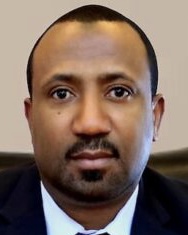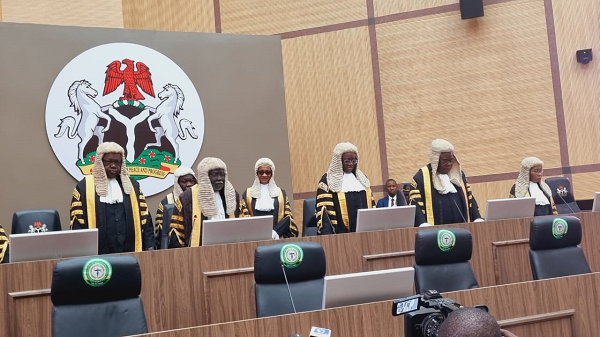“If you are not of the solution, you’re part of the problem.” – Eldridge Cleaver
Public officers are tasked with a spectrum of responsibilities encompassing policy development and execution, efficient resource management, service provision, public welfare, regulatory oversight, and enforcement. They are also charged with maintaining transparency and accountability in governance. These functions are pivotal for the enforcement of Section 14 (2) (b) of the Constitution of the Federal Republic of Nigeria, which is essential for fostering public trust and ensuring effective governance.
However, there is an emerging trend among public officers, which has been ongoing for some time, wherein active public servants retain their positions in Nigeria, while relocating their families abroad. Initially, this practice involved sending children overseas for education, but it has now expanded to include the relocation of entire families. These officers remain in their official capacities, exploiting national resources. While this practice is not illegal, it poses significant challenges to national development.
The public service sector is currently encumbered with inefficiencies, characterised by an excessive number of agencies and personnel. The proliferation of ministries, departments, and agencies, along with the substantial number of public officers, has led to escalating recurrent expenditures without corresponding positive outcomes. This sector is plagued by numerous agencies, redundant functions, inefficient government-owned enterprises, poor work ethic, and a lackadaisical attitude towards public service at both the national and sub-national levels. In many agencies, the proportion of productive staff is often below 30 per cent. Those who are productive are frequently marginalised as they pose a threat to the entrenched status quo and are consigned to being the minority. The political class, with its resistance to change, has hindered the implementation of the Oronsanye Report and other reform initiatives.
Advertisement
In the absence of government data to measure effectiveness and efficiency, let’s use the African Index on Governance 2024 as a barometer. The report indicates that overall governance in Nigeria has declined from 2014 till date to 45 per cent, one of the lowest scores in Africa. Indicators such as Personal Safety, Accountability, Rule of Law under the Security theme have all declined within the last period of assessment, with a score of 39 per cent. Similar declines are reported under Welfare, Education, Health, Public Management, Business Environment, Infrastructure and Rural Sector. Who are the drivers of these sectors? Public officers who are now stowing their families away, which infer that things may get worse, for their commitment is in doubt.
Bottomline, analysis indicates that no public officer can afford to send two children to school across the Atlantic or Pacific solely from their salaries. Even the high earning government owned enterprises that ‘pay themselves’ through various questionable schemes – with the connivance of the National Assembly and Salaries and Wages Commission – the highest that a director can earn is N65 million a year. For those with direct allocations, it is N25 million a year. For poorer institutions like the Supreme Court, the highest a judge earns is about N20 million a year. With the exchange rate at say N1500/$1, the sum of N65 million translates to about $43,000. As such, if every public officer, from level eight to 17 receives a director’s level salary in a well-paying organisation like the Central Bank of Nigeria (CBN) or Federal Inland Revenue Service (FIRS), the total legal annual income is about the mentioned $43,000. There are a few exceptions, such as diplomats, who may earn more through regular postings and have access to mortgages that are payable over time. For the others, how much are their earnings to afford servicing such mortgages?
This situation raises concerns regarding the role of the Code of Conduct Bureau. Historically dormant for decades, the Bureau, in collaboration with the ICPC and EFCC, could enforce the “living above means” clause to address the issue of funds being siphoned from Nigeria, converted into foreign currencies, and transferred abroad. This constitutes a clear case of illicit financial flows, highlighting an anti-corruption perspective. However, with reports suggesting that staff from these anti-corruption agencies are also relocating their families abroad, this issue is escalating into a national security concern.
Advertisement
The ethical dilemma centres on the expectation of achieving quality education when public officers are relocating their children and families abroad. This issue extends beyond education to encompass healthcare as well. Public service inherently demands dedication. The loyalty and commitment of public officers who have relocated their families abroad are questionable, particularly when evidence suggests such actions are not feasible within their legitimate incomes.
To address this issue, implementing bans is ineffective in Nigeria as they often lead to rent-seeking behaviours and yield minimal results. Legislation is also unlikely to succeed due to the complicity of National Assembly members. The initial step should involve the Secretary to the Government of the Federation formulating a policy on the ownership of assets abroad, reinforcing existing laws and regulations on this matter.
Subsequently, the Code of Conduct Bureau (CCB) should enhance its data collection efforts and leverage the mutual legal assistance mechanism in criminal matters to alert foreign authorities about public officers who have concealed such information. These officers would then be compelled to either declare their assets or face justice in jurisdictions with stringent enforcement.
This approach would incentivise them to invest in local education and healthcare for their children. If they wish to emigrate, they should resign from their positions. They cannot contribute to the problems and then be allowed to escape from the consequences, while leaving the victims of their actions and inactions to bear the brunt of such.
Advertisement
Yakubu writes from Center for Fiscal Transparency & Public Integrity and is a member of the UNCAC Coalition. X.com: @umaryakubu
Views expressed by contributors are strictly personal and not of TheCable.
Add a comment












